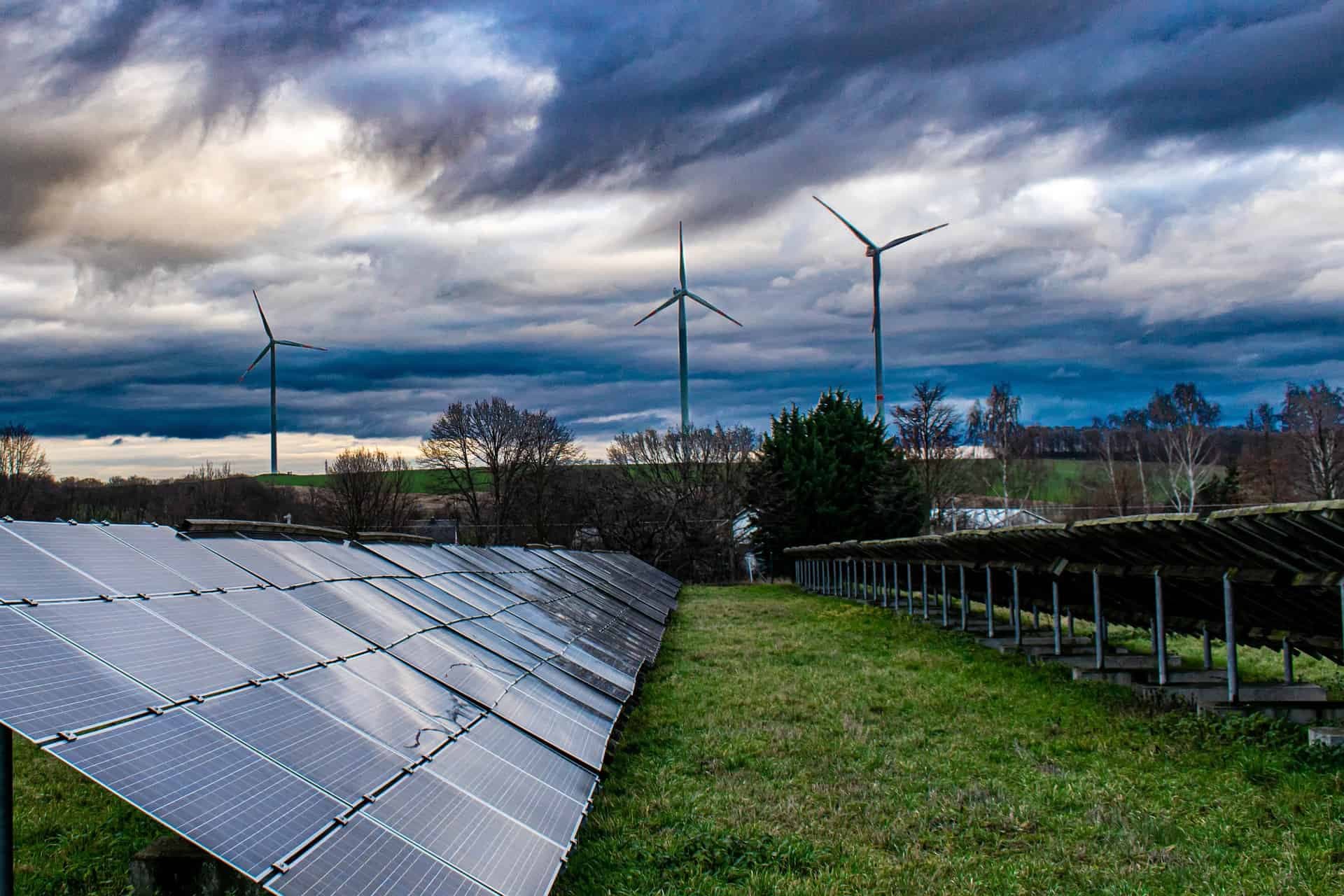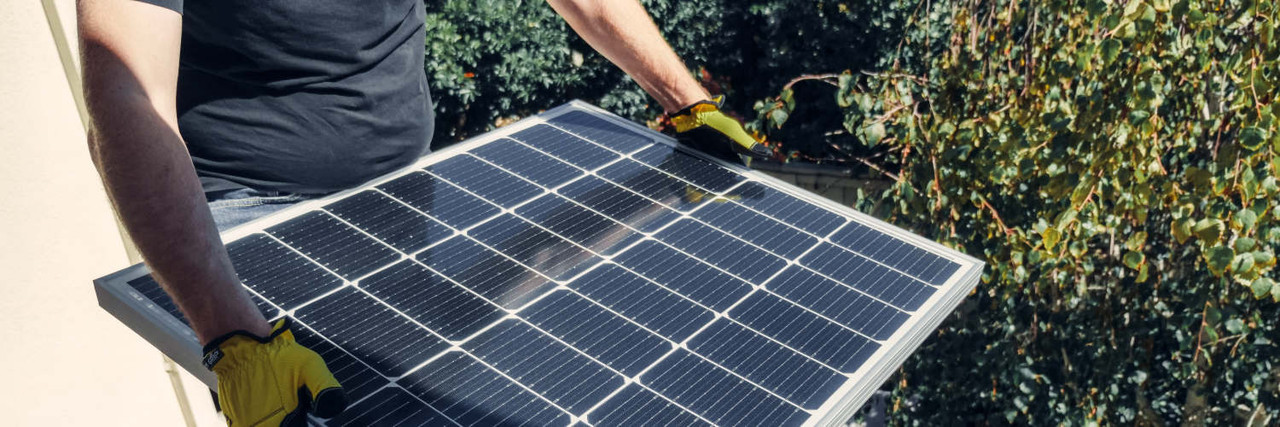Do Solar Panels Work On Cloudy Days? | Unbelievable Truth
Can solar panels work on cloudy days? This might be a common question and concern for many homeowners who have installed solar panels.
Yes, solar panels can work on cloudy and overcast days, but their solar efficiency is lower compared to sunny days. You will generate less electricity on cloudy and overcast days than on sunny days.
What are solar panels, and how do they work?
Solar panels help to convert sunlight into energy which can be used to power your home. They are made up of solar PV cells (or solar photovoltaic cells) made from multiple layers of a semi-conducting material such as silicon. As sunlight shines on these cells, it creates a flow of electricity. Solar PV cells respond to light, stronger sunlight generally means more electricity. Solar panels capture the most light around noon, when the sun is at its peak, especially on clear, sunny days. However, even on overcast winter afternoons, the dim light still generates enough energy to produce electricity.

Do solar panels work on cloudy days?
Solar panels convert the sun into electricity which doesn’t mean they only work on sunny days. Remember that it is daylight, not sunlight, which powers the solar cells. In fact, solar panels work all year round, even on cloudy days. The specific amount of electricity generated depends on the thickness of the clouds and the quality of the solar panels.
Cloudy days
Generally speaking, Cloudy days do significantly impact how effectively your solar panels work. On an average overcast day, solar panels will typically operate at around 25% of their normal output. But sometimes there is a phenomenon known as the "Edge-of-Cloud Effect," where energy output can actually spike during cloudy days. This occurs when the sun’s rays are magnified as they break through a cloud, resulting in a significantly higher electrical output compared to normal. However, this sudden burst of high electricity generation can cause additional issues, such as blowing fuses and decreasing the lifespan of the inverter.

Do solar panels work on snowy or rainy days?
Yes, solar panels can work on snowy and rainy days.
Snowy days
“ A dusting of snow has little impact on solar panels.” explained the Office of Energy Efficiency & Renewable Energy in one of their articles. Solar panels can work as usual on snowy days as long as there are no snow coatings on solar panels. Snow accumulations can result in a loss of conversion efficiency of over 5% or even lead to the hot spot effect, a common issue occurring when solar panels are shaded.
For areas where it snows a lot, it is recommended to hook up the solar panels with a larger inclination angle. So that the snow can slide off to a certain extent, thus reducing the effect on solar panels’ efficiency. More than a larger inclination, you can also mount the solar panels higher to keep a safe distance from the deep snow on the ground.

Rainy days
Solar panels work on rainy days because they can still generate electricity from the sunlight that penetrates through the clouds. While their efficiency may be reduced compared to sunny days, they are still capable of producing energy. Additionally, rain can help keep the panels clean by washing away dirt and debris, which can improve their efficiency over time.
Do solar panels work at night?
At night, there is no sunlight and solar panels cannot generate any electricity. However, that doesn’t mean that you will be without power. You can use the solar batteries to store the excess electricity generated by the solar panels during the day and then power your home at night. Using solar panels can also avoid paying high electricity bills during peak hours.
Tips to improve the efficiency of your solar panels on a cloudy day
Solar panels efficiency is not high on cloudy days. Here are some tips to improve your power generation efficiency.
Regular Cleaning and Maintenance: Dust, dirt, and debris can block sunlight from reaching the solar cells. Regularly cleaning your panels ensures maximum light absorption. Adjust Panel Angle: Set your panels at the optimal tilt angle for your location to maximize light capture year-round.
Install a Solar Tracking System: Solar trackers adjust the position of the panels to follow the sun throughout the day, maximizing light capture even when the sky is cloudy.
Maximize Light Exposure: Install panels in the sunniest location on your property, typically a south-facing roof and ensure there are no obstructions like trees or buildings casting shadows on your panels.
Use High-Efficiency Panels: Use monocrystalline solar panels that perform better in low-light conditions or bifacial solar panels. They can capture light from both sides.
What are the best solar panels for cloudy days?
While any solar panel will work in cloudy conditions, there are certain options that are able to work better. There are currently three main types of solar panels available on the market today, Monocrystalline PV, Polycrystalline PV, and Amorphous (or Thin Film).
These three technologies differ in how they’re manufactured, and the quality of the silicon used. Each of these also has differing levels of efficiency, sensitivity to light, overall size, and cost. Of the three, Monocrystalline is the best for cloudy days. This is because the cells used in their construction are made of the highest quality of silicon, while the crystals used are formed from a single item. This ensures that the electrons produced are able to flow and move far more freely, creating a higher rate of electricity.
At Renogy, we offer the best monocrystalline solar panels for sale, as well as other necessary components such as charge controllers, lithium iron phosphate batteries, pure sine wave inverters and connecting wires. Contact us for an all-in-one solution right away so that you can go solar with the least hassle.
FAQ
Should I install solar panels if I live in a cloudy climate?
Solar panels can still be a cost-effective investment at most times, even in cloudy climates. You can install high-efficiency solar panels to improve the electricity production.
How much electricity do solar panels produce on cloudy days?
Production levels depend on cloud thickness, type, and location. High-efficiency panels will generate more electricity on cloudy days.
How much does cloud affect the efficiency of solar panels?
The thickness and type of clouds both affect how much sunlight reaches the ground. Thinner, higher clouds allow more light to pass through than thick, low storm clouds, and fine cirrus clouds allow more sunlight through than cumulus clouds.











